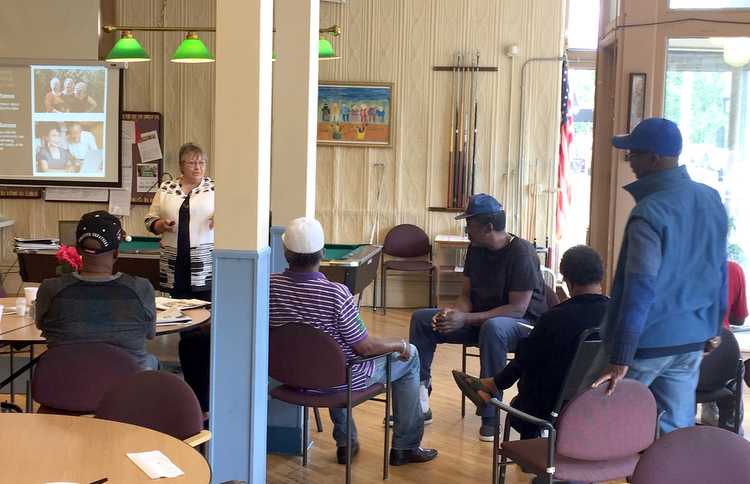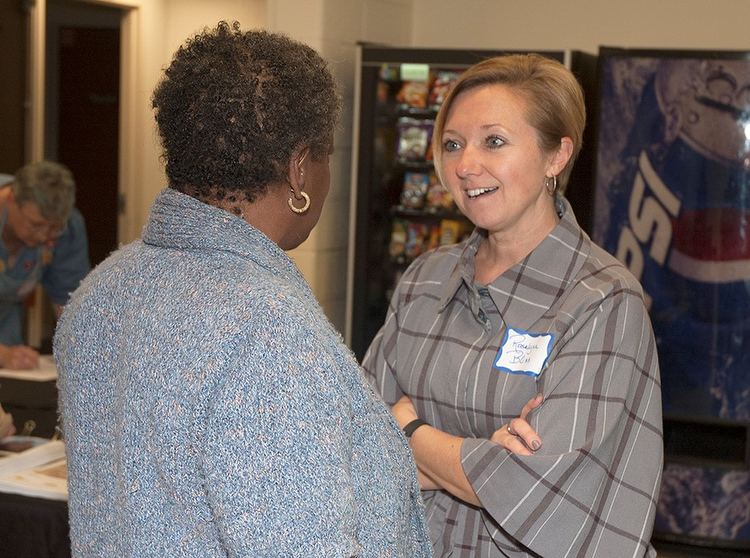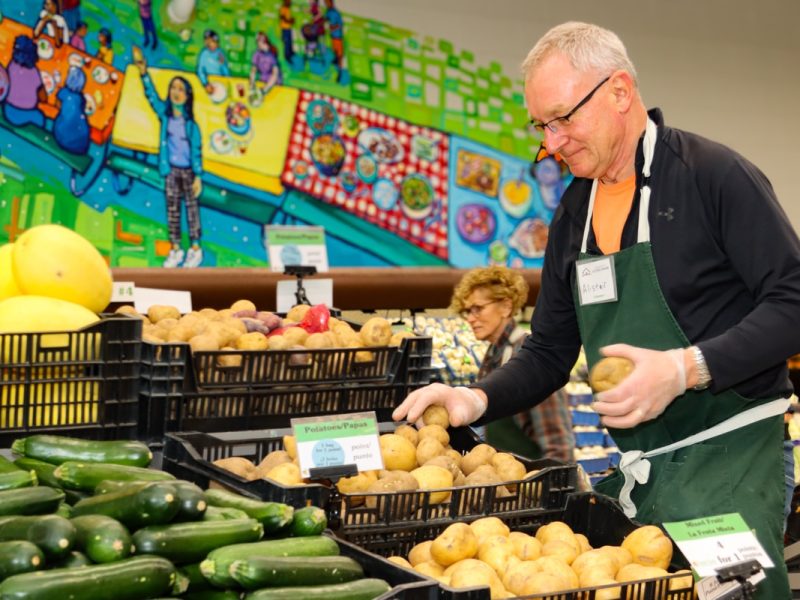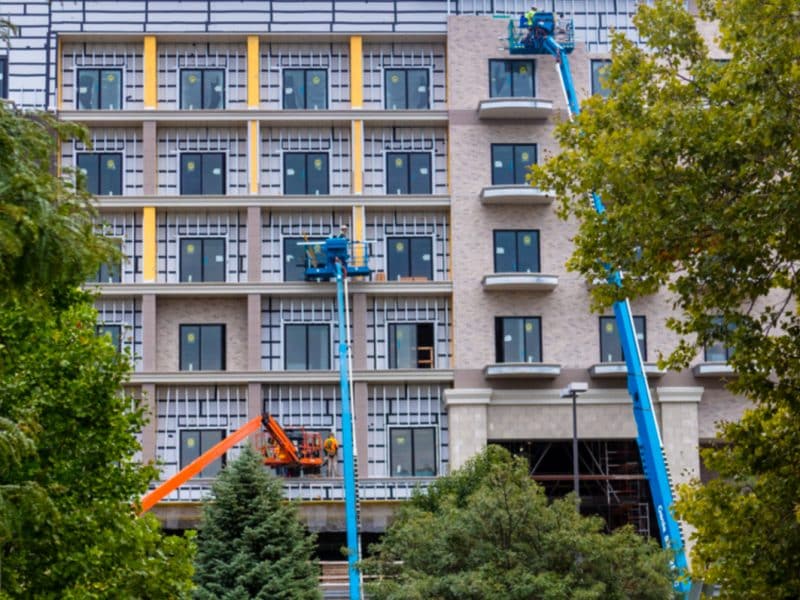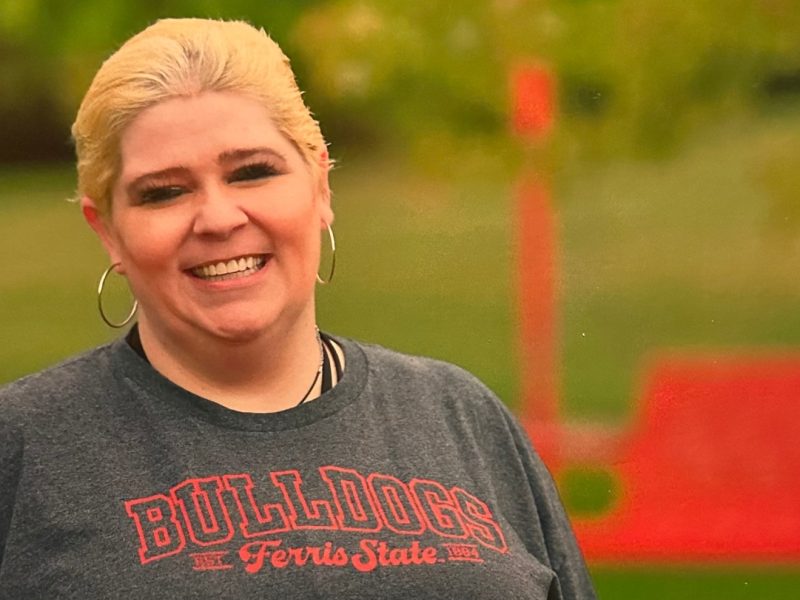Grand Rapids seeks WHO age-friendly community designation
The City of Grand Rapids plans on earning WHO age-friendly community designation. In early May, the City Commission unanimously approved the first step by creating an Age-Friendly Advisory Council. Their goal will be to develop a community action plan that makes Grand Rapids a great place for older adults.
The World Health Organization (WHO) is concerned about older adults. Its age-friendly community designation initiative is one way the international body is addressing that concern. The City of Grand Rapids plans on earning that designation. In early May, the City Commission unanimously approved the first step by creating an Age-Friendly Advisory Council. Their goal will be to develop a community action plan that makes Grand Rapids a great place for older adults.
Second Ward Commissioner Ruth Kelly brought the idea back to the commission in 2015, after hearing about the initiative during the American Association of Retired Persons (AARP) Livable Communities National Conference.
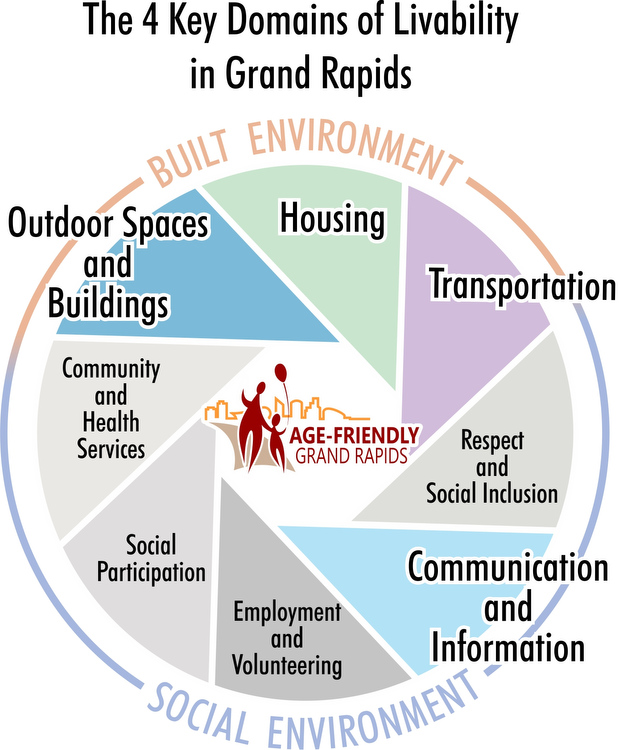
“Ruth Kelly said, ‘We’re already doing this in Grand Rapids so we should talk about it more,’” says Ginnie Smith, Age-Friendly Communities coordinator for the City of Grand Rapids. “Last fall, our local AARP chapter, the Area Agency on Aging of Western Michigan, and various city, nonprofit, and neighborhood leaders put together 23 listening events involving 300 older adults.”
The events garnered more than 2,000 responses from intentionally diverse demographics concerning four of the eight domains that the WHO initiative addresses: housing, transportation, communication and information, and outdoor spaces and buildings. Survey methodology included engaging participants in a specially designed board game, GrandyLand.
Mayor Rosalyn Bliss showed her support of the initiative by naming Where We Live – Communities for All Ages as her 2018 Mayor’s Book of the Year.
“This is an exciting next step in our journey to becoming an age-friendly community,” she says. “We need to make sure our seniors are living healthy, productive lives and that they have a voice in how we do that.”

According to WHO, “An age-friendly world enables people of all ages to actively participate in community activities and treats everyone with respect, regardless of their age.” From this perspective, American society does not gain high marks. While other societies confer special status on elders because of their wisdom and experience, here “seniors” are routinely stereotyped as cute, comic, cantankerous, helpless, or obsolete—especially in popular media. The WHO’s age-friendly initiative not only addresses ageism but also serves as a platform for cultural change.
The other four areas that WHO addresses transcend the built environment to include social participation; respect and social inclusion; community and health services; and civic participation and employment. Concerning the latter, older adults who want or need employment find that ageism is hard to beat. Despite research confirming that older adults offer more experience, confidence, dependability, and loyalty, the United States Department of Labor Bureau of Labor Statistics has documented age-discrimination in hiring, especially for women and those older than age 64.
“Not all (elders) are wanting to retire but they don’t want to work 70 hours a week, either. They are looking for part time, flex-time, or to work seasonally,” Smith says. “We’re seeing a lot of overlap between what older adults want and what millennials want—in services, access to transportation, and having community connections.”
Because millennials are in queue a few decades behind the baby boomers, joining in to make Grand Rapids an age-friendly city is equally as important for them as for their parents and grandparents. A community where everyone can grow up and grow old with expectations of equity and respect, no matter their race, ethnicity, gender, sexual orientation, or age, is a community that’s healthier and happier for all.
Written By Estelle Slootmaker, Development Editor
Photos courtesy City of Grand Rapids

